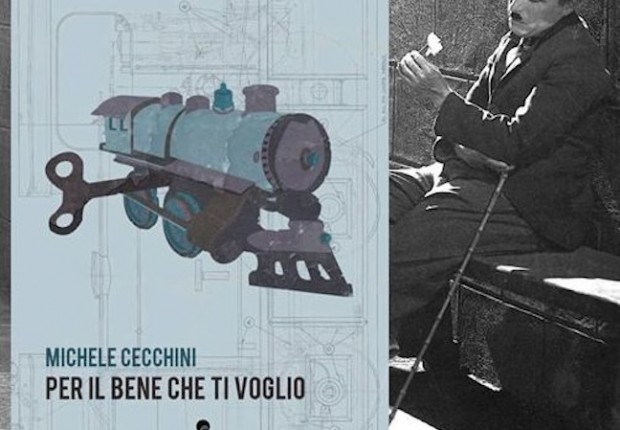 As any change is a possible enrichment, the influence of the English language on the Italian one is certainly an interesting fact. But someone exaggerates … our blog “Italiese – Rubrica bacchettona” studies with lightness that exaggeration.
As any change is a possible enrichment, the influence of the English language on the Italian one is certainly an interesting fact. But someone exaggerates … our blog “Italiese – Rubrica bacchettona” studies with lightness that exaggeration.
Source: Italiana – Lingua e Cultura
– Twelfth episode: “Do you speak Sicilianglo?”
The “sicilianglo”, better known as siculish, is another form of our beloved Italiese- but this time, compared to what we have seen on previous posts, it is a phenomenon that is completely natural and appreciable, absolutely immaculate against the usual sins of servility, provincialism, esterophilia.
Sicilian immigrants in the United States in fact created a special language, made up of English words, expressions and idioms adapted informally to the Ita … I mean, to the Sicilian language (which, we remember, is the first language of the history of Italian literature).
Any examples?
Trubbulu from Trouble
Carru from Car
Minnistritti from Main Street
Giobba from Job
Fattoria from Factory
Fare disturbi from Make troubles
Uazza marra iu? from What’s the matter with you?
Sciarappa from Shut up
Bocchise from Box
Tastari from Taste
Picchinicca from Pic-Nic
Bildingu from Building
Bega from Bag
Ruffu from Roof
Nepichina from Napkin
Storo from Store
Ausa from House
Butti from But
(Find other words and other stories at the links:
http://www.funteaching.it/project/Dossier05/L’%20italo-americano.htm, http://www.americaoggi.info/node/24526, http://it.wikipedia.org/wiki/Siculish )But when those Italians who remained comfortable at home – and have also studied at university – produce forms such as “realizzare” (from to realize), “to disegnare” (from to design), ” spendere le vacanze”(from to spend the holidays), these, in addition to betraying the provincialism and the true ignorance, are moreover hypocritical – because apparently they seem perfectly in order: pure Italian.
(Edited by Alberto Cassone)
– -Eleventh episode: “A sonnet”
The sonnet is a kind of poetic composition that some centuries ago had great fate, both in England and in Italy. Scrabbling in the attic between old protocol sheets, scribbled and moldy notebooks, last night I found an old sonnet written by an anonymous author. In a side note, the unknown writer hopes that the fatal prophecy – which takes shape in poetry – does not come true, on the contrary, remaining only the momentary result of an excessive personal pessimism.
Dolce il nostro sì suonante Paese
è, ove si parlan infiniti idiomi;
se alcun di lor bislacchi e buffi han nomi
(Ogliastrino, Pantesco, Sarrabese)
nessuno d’essi eguaglia in buffità (Italian ancient sonnet)
quell’idioma bislacco e anzi trislacco
che aprendosi passivo, come uno sciocco sacco
dall’insigne lingua inglese rigonfiar si fa.
Chi lo chiama Angl’Italiano, chi Italiese
(un meeting sulla scelta certo non mancherà);
ciò nonostante è chiaro che il suo impiego
sottintende un know-how d’alto livello.
Non si capisce? Allor meglio mi spiego:
l’idioma è sulla lingua, l’idiota è nel cervello.
(Edited by Alberto Cassone)
– Tenth episode: “773 percent”
They have increased by 773 percent.
What? It is obvious: the English expressions adopted by the Italian language. When? Only in the last eight years, according to Federlingue, an Italian association of translators, interpreters and language schools.
This is reported by an article by Nick Squires on the online pages of “The Telegraph” (http://www.telegraph.co.uk/news/worldnews/europe/italy/7415138/Itanglese-…-or-Anglitaliano-the- Italians-adopt-a-little-English.html), article titled Itanglese … or Anglitaliano: the Italians adopt a little English, website opening – inevitably – with a picture of a succulent pizza.
In the text we find many of the tragicomic situations already dealt with in our blog, such as the improper and inappropriate use of English terms:
“[…] there are also phrases which sound distinctly odd to a native English speaker, such as “baby parking” […], “baby gangs”, […] “sexy top models””.
We remember the distinct needs – for young Italians, to be “cool” and, for Italian companies, to look efficient:
“While the use of Anglicisms is regarded as sounding cosmopolitan and “cool” (another English import) by youger Italians, businesses have had to adapt to the global spread of English in trade and technology”.
Fortunately, the English never fails the self-irony (without which, let’s face it: they would be the most hateful people in recent history); such great quality leads Nick Squires to remember how they too often make an improper use of the Italian language:
“Walk into a cafe in Rome or Milan and ask for a” latte “and you will be handed a glass of milk. If you want a milky coffee, you need to request a “caffelatte”.
In addition to its intrinsic interest, even to practice English, the full reading of the short article is highly recommended. http://www.telegraph.co.uk/news/worldnews/europe/italy/7415138/Itanglese-…-or-Anglitaliano-the-Italians-adopt-a-little-English.html
(Edited by Alberto Cassone)
– Ninth episode: “Desperanto”
A wonderful and unattainable idea: Esperanto. In two sentences: a language without irregularities; a language that absorbs, reuses and modifies Italian, French, English, German, Spanish, Russian, Polish, Japanese, Hebrew, Arabic, Chinese, Hungarian (and from other languages) to obtain the maximum international comprehensibility.
If we all learned Esperanto, phenomena like Italiese (or like its cousins Franglais and Spanglish) would disappear completely, for the relief of many. There is only one minor difficulty: spreading this wonderful language is a desperate attempt. Do not you agree? Try then to bring out all your willpower to be able to read these few words (this is the translation of the incipit of Pinocchio from Italian) in Esperanto:
“Estis iam … – Reĝo! – certain tuj diros miaj malgrandaj legantoj. – Ne, geknaboj, vi eraris. Estis iam lignopeco. Ĝi ne estis ligno luksa, sed simpla peco el stako, tia, kian vintre oni metas en la fornon aŭ kamenon, por bruligi fajron kaj varmigi la ĉambron. I scias, kiel okazis, sed fakto estas, ke iun tagon ĉi tiu lignopeco venis en la laborejon de maljuna lignaĵisto, kies nomo estis majstro Antono, kvankam ĉiuj nomis lin nur Ĉerizo pro nazopinto, ĉiam brila kaj ruĝa, similar to mature ĉerizo “.
And now, for those who managed to get to the bottom … go on with the re-translation into English.
(Edited by Alberto Cassone)
– Eighth episode: “Business and business – a reflection”
Italiese is a state of mind. Italiese is believing that the use of English terms denotes professionalism and efficiency. Who does “business”, does it better than those who do “affari”.
He does it better, but not only. The “affair” are dirty, as the Catholic Christian tradition taught us, that during the Middle Ages it delegated the management of the money to the “dirty Jews” and, more generally, to the “dirty capitalists”, enjoying its superiority. Doing business, on the contrary, is creating work, producing, enriching oneself, acquiring social and personal prestige. The Protestant Christian culture, once affirmed in almost all of Northern Europe, has in fact removed the old word “ethical” referred to management and multiplication of money. Over time, through some fundamental steps (firstly, thanks to the life and work of Benjamin Franklin), it has turned it into a positive value. Today, those doing “business”, recall in the collective cultural unconscious, the industriousness and ingenuity of the Anglo-Saxons and the Germanic people in general; who does “affair”, instead recalls selfishness, corruption, cynicism and moral garbage.
Dear reader, answer me sincerely: this week, next, this month – do you have a meeting or a “riunione”?
(Edited by Alberto Cassone)
– Seventh episode: “But this post makes no sense!”
Another form of influence of English on Italian, more subtle than the others, is the interference that the language of the Perfid Albion exerts on ours through internationality. Let me explain: in the world we can find foreigners who study – or already speak fairly well – Italian. Also, many Italian sportsmen wander the world, they mumble, chew or master English and have to practice it during international events related to their discipline. In this “nobody’s Land”, languages are contaminated – regardless what your mother tongue is: Italian tennis players are convinced that the phrase ” ho la massima confidenza nel mio rovescio”(I have the utmost confidence in my backhand) is understandable in their mother tongue, while English-speaking students of Italian say without guilt that ” la politica italiana non fa senso” (Italian politics makes no sense).
In the two examples above you might have noticed, the one way direction contamination from English into Italian. Time ago a Polish doctor, resentful of such injustices, invented a language: Esperanto. We’ll talk about it later on. We now return to our English-speaking and Italian-speaking students, with a funny list of phrases and expressions that, according to them, are formulated in Italian:
I bambini dovrebbero imparare a “giocare” uno strumento musicale.
Quell’attrice sognava di “giocare” una parte a teatro con un grande regista.
Domani “visiteremo” la professoressa di Storia. Vieni anche tu? È simpaticissima.
Ragazzi, avete “mangiato” la colazione? Sì? Volete ancora un caffè?
Dobbiamo “riservare” una camera doppia per tre notti, giusto?
Siccome la televisione non “lavorava” bene, sono andati a vedere la partita al bar.
Domani è il compleanno di Marta. Lo “celebriamo” tutti nel ristorante di suo zio.
Luigi è in camera. Sta “scrivendo” l’esercizio di matematica.
Il professore ci “chiede” sempre delle domande difficili.
Ieri abbiamo “ascoltato” una notizia incredibile: Laura si è sposata. Ma è vero?
Mi dispiace, ma quello che dici non “fa” senso.
Durante la gita al lago di Garda avevamo già “preso” molte fotografie.
“Prendi” il cane nel parco! Poi al ritorno “nutri” il gatto, per favore!
Ragazze, mi raccomando: stasera dovete “ritornare” i soldi alla nostra coinquilina italiana.
Questa frase non è sbagliata, però “si sente” male.
Stamattina alla posta hanno “rubato” una signora anziana che aveva appena ritirato la pensione.
Dopo che ebbero “rubato” la banca, i ladri scapparono all’estero.
Questo piatto “vuole” molto tempo. Non c’è una ricetta più semplice e veloce?
Domani devo “incontrare” i miei zii all’aeroporto perché c’è uno sciopero dei tassisti.
In questo modo, il giornalista “ha fatto” la notizia incomprensibile.
Non appena arrivarono a Roma, “affittarono” una moto.
I contadini a quel tempo “allevavano” le patate, le carote e tanti altri tipi di verdura.
(A cura di Alberto Cassone)
– Sixth episode: “The importance of translating earnestly”
How many times have we not gone to see a movie (which we later discovered to be beautiful) because of its title, or did we go to see a horrible one for the same and inverse reason?
Translations of books and films are not always easy. How do we translate “The importance of being Earnest”? Someone tried, intelligently, with “L’importanza di essere Franco”, but it didn’t work well. What about Jane Austen’s classic, “Sense and sensibility”? The Italian “ragione e sentimento” makes up the idea only partially.
In many cases, however, the translations are not so difficult at all- and really, it is no longer an Italian version of the English title, but another title – obviously, for marketing reasons. Sometimes the effects are hilarious:
| ORIGINAL TITLE | ITALIAN VERSION |
| How to lose friends & alienate people | Star system – se non ci sei non esisti |
| Ruthless people | Per favore, ammazzatemi mia moglie |
| Eternal sunshine of the spotless mind | Se mi lasci ti cancello |
| The myth of fingerprints | I segreti del cuore |
| The sound of music | Tutti insieme appassionatamente |
| Analyze this | Terapia e pallottole |
| The boat that rocked | I love Radio Rock! |
| Son of Flubber | Un professore a tutto gas |
| 40 pounds of trouble | Venti chili di guai.. e una tonnellata di gioia! |
| I ought to be in pictures | Quel giardino di aranci fatti in casa |
| Sudden impact | Coraggio.. fatti ammazzare |
| Easy virtue | Un matrimonio all’inglese |
| Biloxi blues | Frenesie .. militari |
| No reservations | Sapori e dissapori |
| Intolerable cruelty | Prima ti sposo poi ti rovino |
| Extreme prejudice | Ricercati: ufficialmente morti |
| Pentathlon | Giochi pericolosi |
| Metro | Uno sbirro tuttofare |
| The offence | Riflessi in uno specchio scuro |
| War gods of the deep | 20.000 leghe sotto la terra |
| Fireflies in the garden | Un segreto tra di noi |
| Jingle all the way | Una promessa è una promessa |
| Curtain call | Amori e ripicche |
| Terms of endearment | Voglia di tenerezza |
| Town and Country | Amori in città… e tradimenti in campagna |
| The Manxman | L’isola del peccato |
| Rumor has it… | Vizi di famiglia |
| Something to talk about | Qualcosa di cui sparlare |
| The ghost writer | L’uomo nell’ombra |
| Margot at the Wedding | Il matrimonio di mia sorella |
| Deck the halls | Conciati per le feste |
| Knight and Day | Innocenti bugie |
| Away we go | American life |
| Keeping Mum | La famiglia omicidi |
| Body double | Omicidio a luci rosse |
| The mirror has two faces | L’amore ha due facce |
| Heart Condition | Un fantasma per amico |
| Adaptation | Il ladro di orchidee |
| Bullet to the head | Jimmy Bobo |
| Woman on Top | Per incanto o per delizia |
Perhaps the most fascinating on this list are the Italian titles in English: “I love Radio Rock!” For the film “The boat that rocked”; “American life” for “Away we go”. Another example of Italiese …
(edited by Alberto Cassone)
-Fifth episode: “A crazy, many crazy!”
He goes: “How easy English is!” – She: “You’re right! No masculine or feminine, no conjugation of the verb except the -s to the third singular, for the plurals always add a -s … “.
For the plurals add one -s, and then … read the anonymous poem “Why English is so hard” and start to suspect that English is the trickiest and most complicated language that exists (as the last verse reads, “the trickiest language you ever did see “):
We’ll begin with a box, and the plural is boxes;
but the plural of ox should be oxen, not oxes.
Then one fowl is goose, but two are called geese;
yet the plural of moose should never be meese.
You may find a mouse or a whole lot of mice
But the plural of house is houses, not hice.
If the plural of man is always called men,
Why should not the plural of pan be called pen?
The cow in the plural may be cows or kine,
but the plural of vow is vows, not vine.
And I show you a foot,
But I give you a boot – would you like to be called beet?
If one is a tooth and a whole set are teeth,
Why should not the plural of booth be called beeth?
If the singular is this, and the plural is these,
Should the plural of kiss be nicknamed kese?
Then one may be that, and three may be those,
Yet the plural of the hat would never be hose;
We speak of a brother, and also of brethern,
But though we say mother, we never say methren.
The masculine pronouns are he, his, and him,
but imagine the feminine she, shis, and shim!
So our English, I think you will all agree,
is the trickiest language you ever did.
(edited by Alberto Cassone)
-Fourth episode: “What is your mission?”
Black Africa? Secret agents? Film with De Niro? No. “Mission” means: here’s what we have to do in this shack, and now that we’ve written it here, let’s not forget it. Is it clear?
We all had to read, in the middle school and many of us even in high school, classical pieces of Italian literature like the poems of Pascoli and Carducci, the stories of Verga and Pirandello. A traditional book often ignored by the school planning is the evergreen “Little dictionary of modern Milanese”, by Beppe Severgnini. A poetic text with a pressing rhythm that illuminates the minds of our times through the evocation of its linguistic obsessions. Let’s read a piece:
“Attention getting, capacità di non annoiare, sconosciuta all’amministratore delegato. Lui però non se ne accorge. E chi glielo dice?
Back office, chi fatica dietro le quinte, lasciando gloria e denaro a qualcun altro. Una volta si chiamava “retro” (“Dov’è quel somaro di Gigi?” “Gigi chi? Il commesso? E’ sul retro”).
Benchmark, se dico “parametro” non mi capiscono. Se dico benchmark non mi capiscono lo stesso, ma è più fine.
Board, in italiano sarebbe “consiglio” (di amministrazione). Ma avete mai visto un capo che vuole consigli?
Brainstorming, riunione dalla quale persone con le idee vaghe escono con le idee confuse.
Brand awareness, se non sanno chi siamo, è un guaio.
Brand image, se ci credono, è fatta.
Charts, arrivano ospiti. Tirate fuori le diapositive.
Competitor, se chiamo così quell’impiastro del mio concorrente, in fondo faccio bella figura anch’io.
Consumer, consumatore ipnotizzato.
Delivery, consegna a gente con soldi da buttar via.
First mover, accidenti, l’idea è venuta a loro.
Full immersion, studio intenso, caro e disperatissimo di qualcosa che si sarebbe dovuto imparare tempo fa”.
[…continues]. This poem by Severgnini cannot fail to remind us of the Divine Comedy, in its biting ability to grasp and express the spirit of the modern time. Today as then, convulsive and neurotic times. Times of conflicts between cultures, conceptions, languages. To read it all: B. Severgnini, Imperfetto manual di lingue, pp. 555-558 – Milan, RCS, 2010.
(edited by Alberto Cassone)
– Third episode: “L’amoretto …”
We all admire the policies of France (“they are a civilized Country!”), secular and courageous, pushing us to appreciate the language of the cousins against the hated language of the “Empire”, English. A policy of pride and defense of cultural identity: nothing more natural, considered “a thing of the left”; nothing more predictable, on the other hand, of the subsequent and stupefied discovery of the truth: in Italy, the government that most defended the linguistic identity was that of Mussolini. Here is a list of “new words”, anti-English and anti-French linguistic proposals, minted and advertised at the time of Fascism to replace their foreign equivalents – some worked, some not, others … a bit:
Mescita – for Bar
Giazzo – for Jazz
Vitaiolo – for viveur
Maglione – for Pull-over
Tipicato – for Standard
Amoretto – for Flirt
Robbiola – for Beef Steak
Autorimessa – for Garage
Regista – for Regisseur
Autista – for Chaffeur
Lista – for Menù
Prospetto pieghevole – for Dépliant
Incartamento – for Dossier
Festivale – for Festival
Scottato – for A’ la coque
Alcole – for Alcool
Sciampagna – for Champagne
Subretta – for Soubrette
(by: Alberto Cassone. List from “Ancient and new Italian” by Gian Luigi Beccaria)
– Second episode: “When traveling …”
… abroad, self-forcing yourself to have lots of fun and to see everything, a comic anti-stress diversion can come in handy. Nothing better then, that devote a little more attention to the numerous ads written in “English for tourists” in hotels and restaurants. Instead of reading them quickly, read them carefully …
“Invisible service is available for your rest not being disturbed” -China
“Special cocktails for women with nuts”– China
“We take your bags and send them in all directions” – Denmark
“After the main course, we suggest you sample the tart of the house” – Germany
“Take one of our horse-driven city tours – we guarantee no miscarriages” – Czech Republic
“To stop the drip, turn cock to right”– Finland
“A sport jacket may be worn to dinner, but no trouser” – France
“Visitors are expected to complain at the office between the hours of 9 and 11 am daily” – Greece
“Is forbidden to steal towels please. If you are not person to do such thing is please not to read notis” – Japan
“Members and Non-Members only”- Mexico
“Ladies are requested not to have children in the bar”– Norway
“The lift is being fixed for the next day. During that time we regret that you will be unbearable”– Romania
“If this is your first visit to the USSR, you are welcome to it”– Russia
“Here speeching American” – Spain
“Standing among savage scenery, the hotel offers stupendous revelations. There is a French widow in every room” – Italy
Written by Alberto Cassone – ALL CREDITS TO: “THE SECRET LIFE OF THE ENGLISH LANGUAGE”, by Martin H. Manser, Orion Books, 2007
– First episode: “Actually, it is..”
Italiese is not a language; It is a somewhat ridiculous way of speaking Italian, using pathetic pseudo-English expressions.
The Italian language, as we all know, is full of English terms: at least 600 of them are now part of our vocabulary. But among them there are some that, even if they are part of it, are NOT really English:
autogrill – in English motorway service station;
autostop – in English hitch-hiking;
box – in English lock-up garage;
camping – in English campsite;
dancing- in English dance-hall;
eskimo – in English parka;
footing – in English jogging;
golf – in English jumper, jersey;
notes – in English notebook;
parking – in English car-park;
plaid – in English travelling rug;
scotch – in English tape;
slip – in English underpants or knickers;
smoking – in British- English dinner jacket, in American-English tuxedo;
spider – in English convertible;
spot – in English commercial;
stage – in English training course;
tight – in English morning suit;
toast – in English toasted sandwich.
Of course, these expressions are fine if you speak in Italian. Woe to the students who dare to use these words in English.
Alberto Cassone
(List by Beppe Severgnini, “Imperfetto manual di lingue”, pp. 257-258)




Leave A Comment